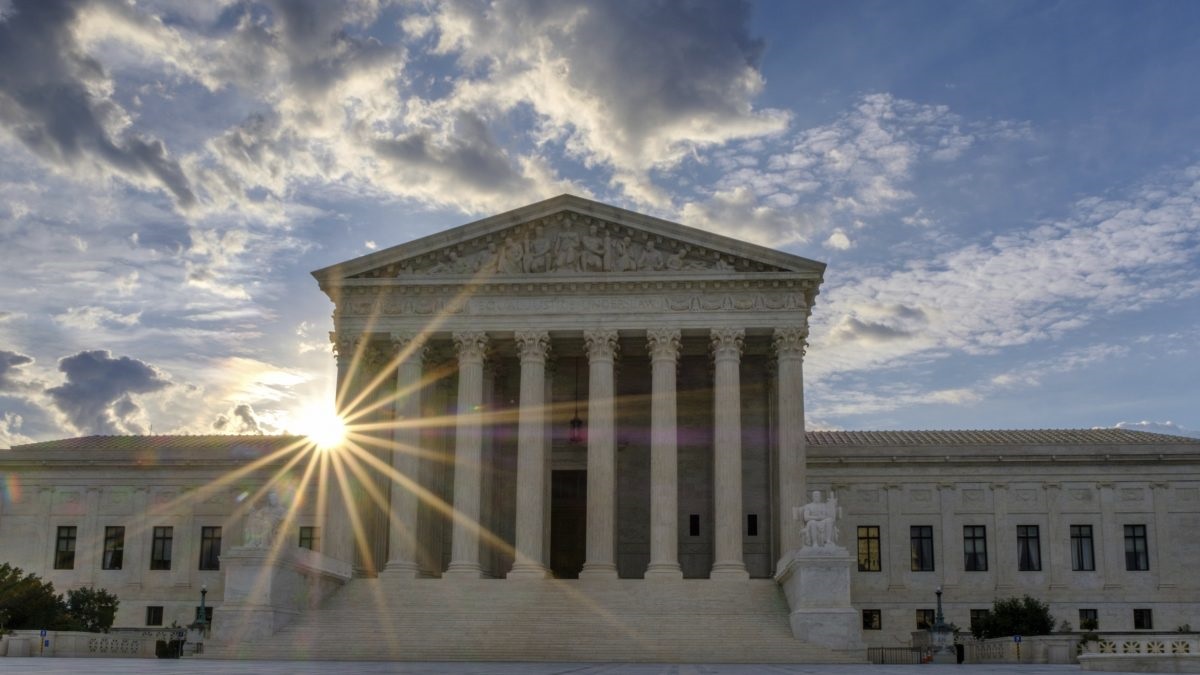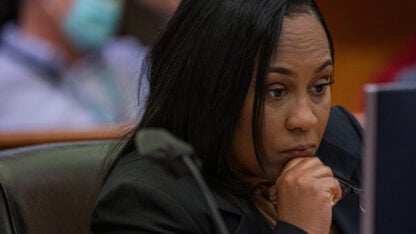The U.S. Supreme Court hears oral arguments Tuesday in a gerrymandering case (Gill v. Whitford) that could change how Georgia lawmakers determine district boundaries for Congress and state legislative seats.
Like us on Facebook
“Georgia is definitely a big partisan gerrymandering state,” said Michael Kang, a law professor at Emory University. “Any decision on the law of partisan gerrymandering is likely to have some sort of impact here.”
The primary question in the case is whether partisan gerrymandering can be identified and challenged in court.
If a single party controls Georgia’s Legislature and governor’s office, like Republicans do now, that party can draw district lines to its advantage across the whole state.
That may mean packing voters from the minority party into just a few districts or spreading them out among multiple districts, effectively diluting their voting power. Both have the effect of reducing representation of the minority party in the Legislature.
“Even when the majority party is doing a bad job, it’s very hard to throw them out because the deck is stacked in their favor,” Kang said.
Georgia Republicans solidified their power thanks to districts they drew in 2011, Kang said, and Democrats tried to do the same back in 2001.
In the South, race and party are closely aligned. Black voters overwhelmingly support Democratic candidates, and a majority of white voters supports white candidates.
In a recent racial gerrymandering case before the U.S. Supreme Court, North Carolina argued it drew district boundaries as part of an effort to gain partisan advantage, not to discriminate.
In Gill v. Whitford, if the U.S. Supreme Court determines partisan gerrymandering cannot be challenged in court, Kang said that would “open the door wider” for parties to defend themselves against accusations of racial gerrymandering by claiming partisanship.
Georgia Gerrymandering Case
Recently, Georgia Republicans have tried to change a few specific district boundaries without redrawing the whole state map, even though the next required redistricting isn’t until 2021, following the census.
There’s a big question whether the court will set guidelines to challenge that kind of targeted redistricting, Kang said.
The Georgia NAACP, along with the Washington-based Lawyer’s Committee for Civil Rights, is challenging in federal court the 2015 redistricting of state House Districts 105 and 111.
GOP candidates retained control of the seats in 2016 by narrow margins.
The groups claim Districts 105 and 111 were drawn to discriminate against black voters and create a partisan advantage for Republicans.
A judge threw out the claims of partisan gerrymandering, and intentional discrimination, but has agreed to hear the claims of racial gerrymandering from the civil rights groups.
A ruling from the U.S. Supreme Court on Gill v. Whitford could shift the direction of the Georgia case, said Ezra Rosenberg, an attorney with the Lawyer’s Committee.
Rosenberg said the Court’s ruling may affect that portion of their claim of partisan gerrymandering, which the judge originally denied.
“There’s always a chance that the claim can be resuscitated,” he said. “It is likely that the decision is going to affect all kinds of partisan gerrymandering claims.”
While Gill v. Whitford is over a statewide redistricting plan, the Georgia case centers on two specific districts.
The Lawyer’s Committee filed a brief with the Supreme Court arguing if the court decides on a standard for redistricting, that standard should be applicable to cases over individual districts, Rosenberg said.









